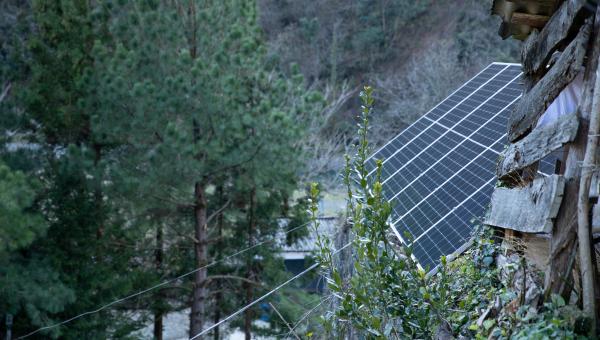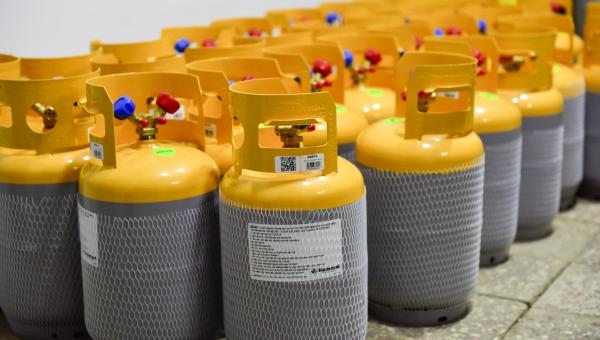
Our focus
Environment & Energy
Summary
UNDP’s Environment & Energy Programme empowers Georgia to embrace sustainable, climate-friendly solutions by integrating environmental and climate priorities into national development.
Through strong partnerships with public institutions, businesses, civil society, local communities, and international organisations, we drive climate-sensitive and gender-responsive policies, support cutting-edge research, and implement green initiatives that create lasting impact. Our capacity-building efforts equip people and institutions with the tools to lead sustainable change.
With a firm commitment to social inclusion, we tackle disparities and ensure that diverse voices shape and benefit from environmental solutions, fostering equal and meaningful participation and sustainable progress across all regions of Georgia.
62/134
Air Quality Index (AQI⁺)
2023
0.04%
Share in Global GHG Emissions
2022
100
Protected Areas
2024
In-depth
Home to rich biodiversity and breathtaking landscapes, Georgia is increasingly challenged by environmental pressures driven by human activity and climate change.
Climate-induced disasters are becoming more frequent and severe, disrupting lives and livelihoods, deepening structural inequalities, and disproportionately impacting disadvantaged groups, including women, minorities, rural communities, and those in remote areas.
Meanwhile, biodiversity loss, land and forest degradation, and air and water pollution are escalating. The energy sector faces persistent hurdles in ensuring energy security and expanding renewable energy use.
Key challenges include:
- Gaps in institutional frameworks, regulations, and enforcement.
- An underdeveloped multi-hazard early warning system.
- Limited capacity to manage climate risks and adapt to change.
- Unsustainable use of natural resources.
- Delays in adopting sustainable urban development and waste management practices.
- Heavy reliance on fossil fuels and slow adoption of renewables.
- Low public awareness and engagement on environmental issues.
- Limited representation and meaningful participation of women in decision-making and climate action.
- Persistent socio-economic barriers limiting women's access to green jobs, resources and climate-resilient livelihoods.
- Low circularity rates across all economic sectors.
- Limited access to green financing and investment for sustainable initiatives.
Addressing these urgent issues requires bold action, innovation, and collective commitment to a sustainable future.
Our Response
UNDP addresses these challenges through targeted initiatives in biodiversity conservation, renewable energy, sustainable urban development, waste management, disaster risk reduction, and the circular economy. A gender-responsive approach is integrated into all activities to ensure equitable access to resources, opportunities and decision-making processes.
We support Georgia in strengthening institutional and technical capacities to monitor biodiversity and air quality, tackle climate hazards, develop early warning systems, and phase out harmful pollutants.
At the core of our work is a commitment to inclusive and equitable climate action, environmental governance, and a green and just transition. We help Georgia advance climate policies, meet its commitments under the Paris Agreement and the UN Framework Convention on Climate Change, and build a cleaner, healthier, and more sustainable future for all.

 Locations
Locations







